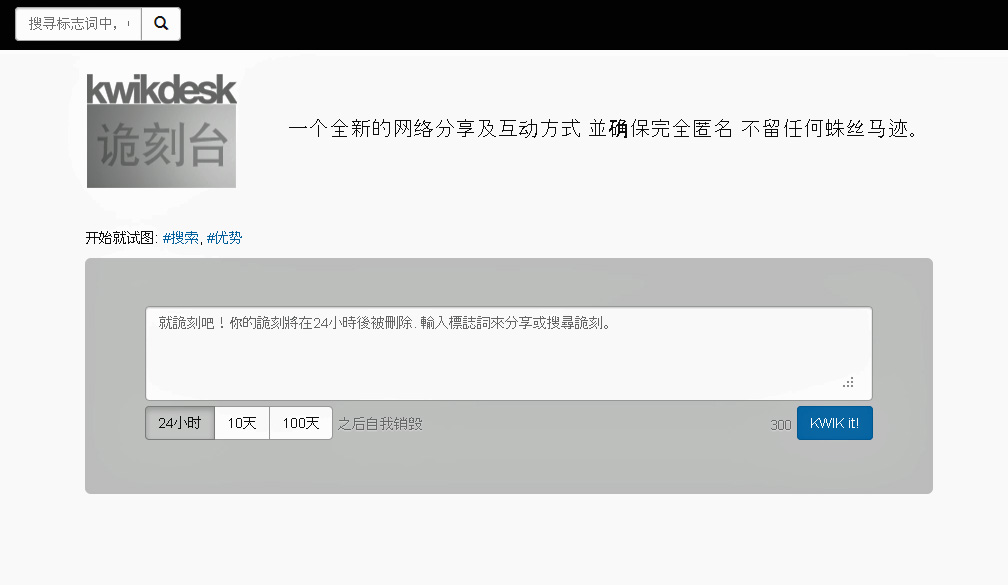 Kwikdesk is only one week old, but a local version of the social messaging tool has already hit China, with the translation help of Wu’er Kaixi, the Chinese dissident known for his role in the 1989 Tiananmen Square protests.
Kwikdesk is only one week old, but a local version of the social messaging tool has already hit China, with the translation help of Wu’er Kaixi, the Chinese dissident known for his role in the 1989 Tiananmen Square protests.
Kwikdesk allows users to anonymously send messages of up to 300 words with hashtags. They can also select one of three possible dates for their messages to “self-destruct” and disappear forever, without a trace. Users also can search existing messages by hashtags.
Kwikdesk is the brainchild of Irish visual artist and photographer Kevin Abosch, who tells VOA he is working on a Russian version of the messaging tool, which is almost ready to launch, and that Arab and Farsi sites are “on the drawing board.”
Abosch, who has photographed some of the most prominent dissidents around the world, says he chose to work with Wu’er because of the latter’s activism. Some, however, have expressed concern that if kwikdesk’s Chinese version is associated too closely with Wu’er, it could attract unwanted attention from the Chinese government.
“Kwikdesk is a piece of conceptual art created in response to other forms of social media I’ve come across,” Abosch says. “There is a beauty in that interplay between the audience and the artwork. Kwikdesk is that interplay.”
The English-language web platform was only launched November 25, but it has already received very positive reviews.

Wu’er Kaixi. Courtesy photo: Kevin Abosch.
“The feedback I’m getting from some people is that there are multitude of experiences one can have through kwikdesk,” Kevin says.
“Yes, there is the possibility of using kwikdesk for ‘discreet communication,’ but it’s also used for a rather free-form, anonymous group discussion, and even gaming. We are in fact, developing a game at the moment — one in which every user plays a unique game tailored cleverly just for them.”
The benefits are clear for persons living under governments that monitor and censor internet messaging. But does Kevin every worry that platforms like kwikdesk could be used by, say, criminals or terrorists who want to communicate under the radar?
“Those nefarious forces which exist, regardless of nomenclature (terrorists, pedophiles, etc…) will always find ways to communicate and engage in unsavory behavior,” Abosch says.
“Sometimes it happens ‘underground’ and other times it’s in plain sight, but just not visible to those not involved. I’m an advocate for free speech. I’m opposed to hate. I’m opposed to those who wish to hurt others.”
Interested in testing kwikdesk out? Go to http://www.kwikdesk.com and search in the search box, top left, for #rePRESSed.
